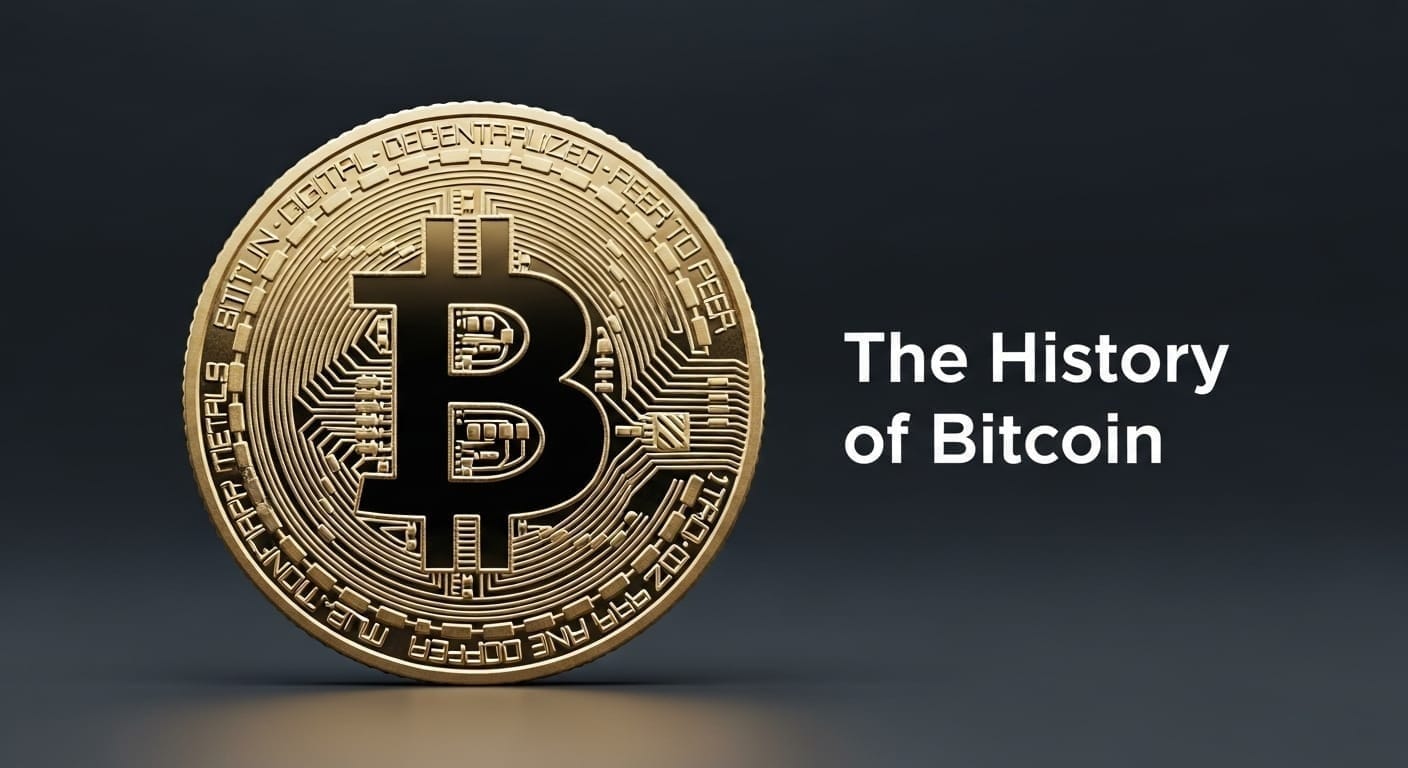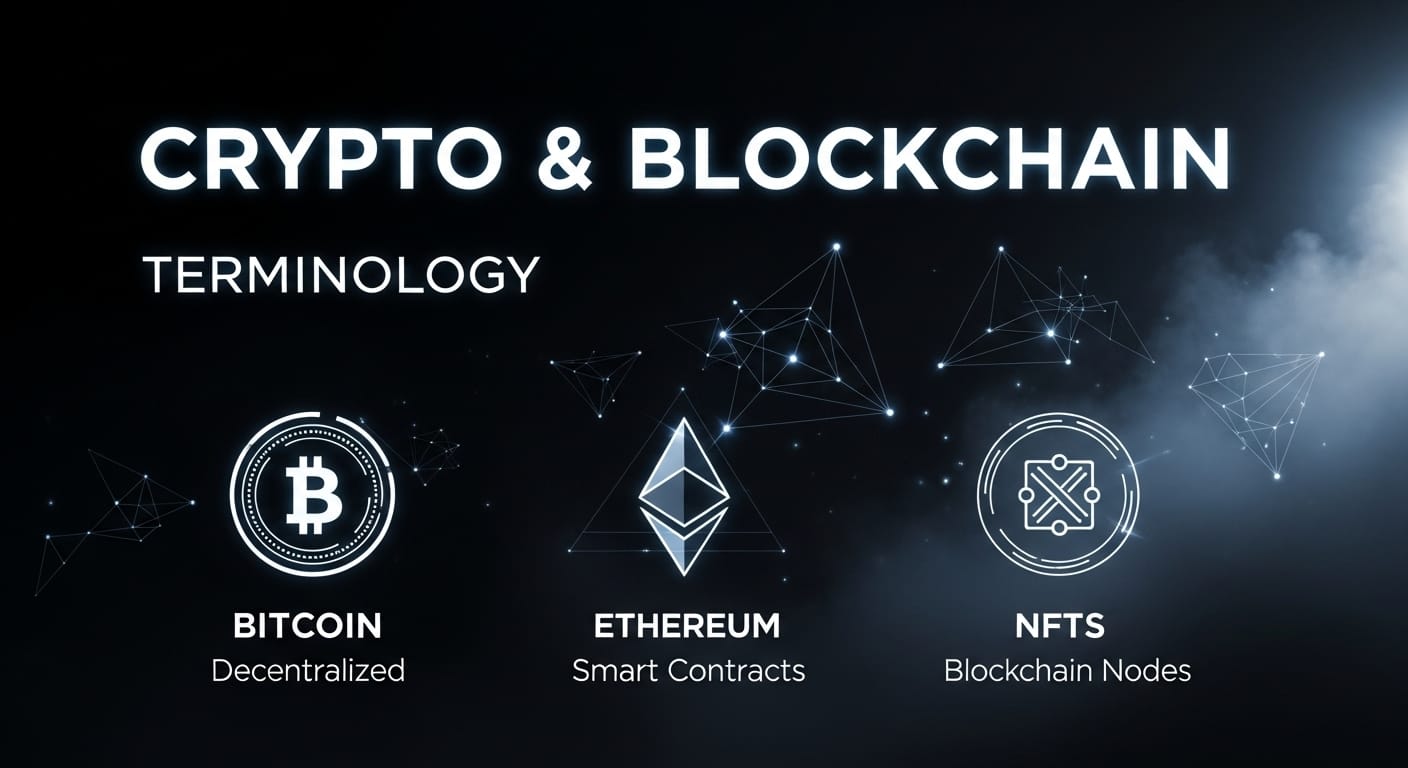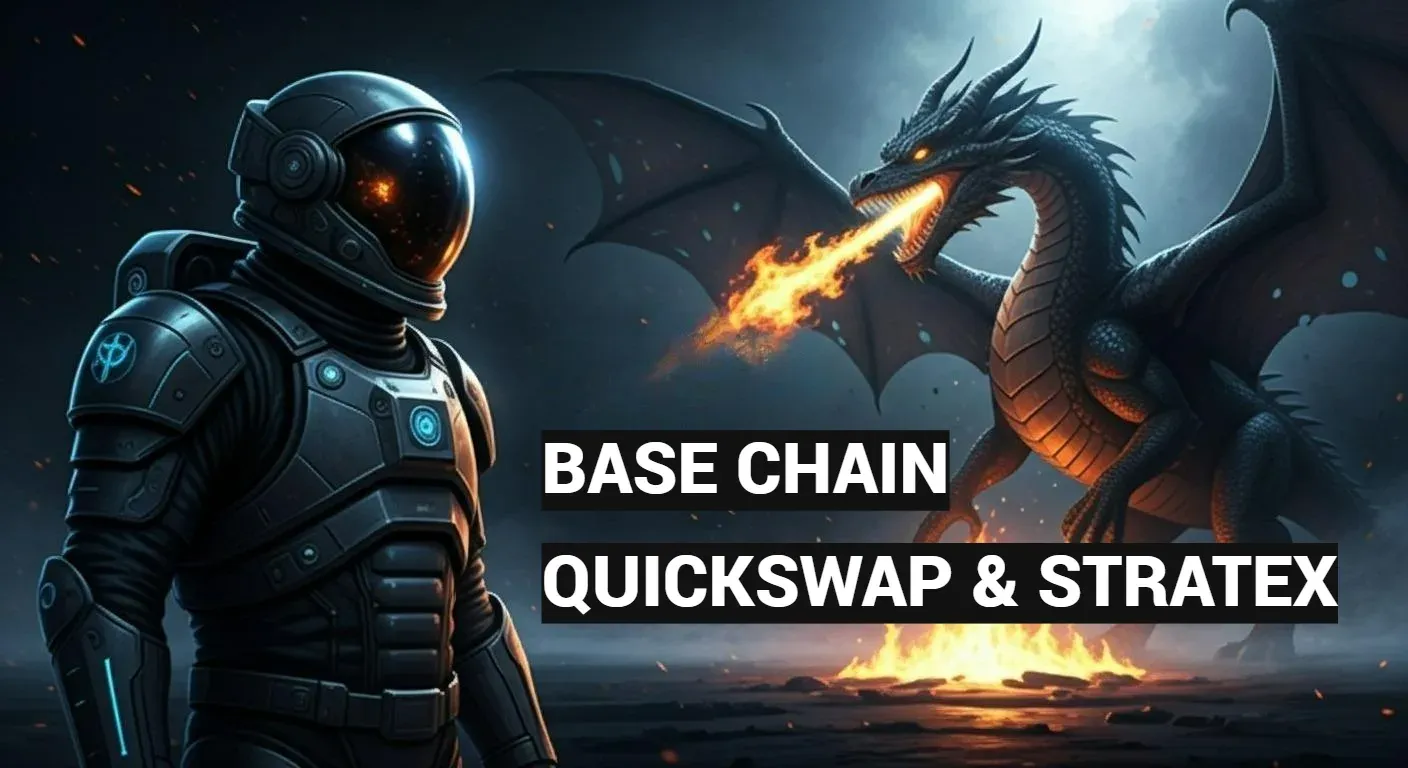Complete Cryptocurrency Glossary
All Essential Terms for 2025
Welcome to the ultimate guide to cryptocurrency and blockchain terminology, tailored for beginners and experts navigating the dynamic world of digital assets in 2025. This comprehensive, SEO-optimized glossary includes all key terms, organized with subtitles and enriched with five detailed bullet points for each term to provide deeper insight. Whether you're exploring Bitcoin, diving into DeFi, or curious about blockchain innovations, this resource empowers you to engage with the crypto ecosystem confidently.
51% Attack: Potential Blockchain Vulnerability
- An attack where a single entity or group controls over 50% of a blockchain’s computing power (in PoW) or staked coins (in PoS), potentially allowing transaction manipulation or double-spending.
- Risk: Can lead to rewriting transaction history, undermining trust in the blockchain.
- Prevention: Decentralized networks and high mining costs make such attacks difficult.
- Examples: Rare but notable attempts have occurred on smaller blockchains like Ethereum Classic.
- Impact: Can cause significant price drops and loss of confidence in affected networks.
- Mitigation: Advanced consensus mechanisms like PoS reduce the feasibility of such attacks.
Address: Your Crypto Identity
- A unique string of characters, derived from a public key, used to send or receive cryptocurrency, functioning like a digital "account number."
- Format: Varies by blockchain (e.g., Bitcoin addresses start with 1 or 3, Ethereum with 0x).
- Usage: Shared publicly to receive funds but does not reveal private key details.
- Security: Always verify addresses to avoid sending funds to incorrect or malicious recipients.
- Types: Can be single-use or reusable, depending on the blockchain and wallet.
- Privacy: Addresses are pseudonymous, not directly tied to real-world identities.
Airdrop: Free Token Distribution
- A promotional event where free tokens or cryptocurrencies are distributed to users, often to boost project awareness or incentivize adoption.
- Purpose: Encourages community engagement and increases token circulation.
- Eligibility: Often requires holding specific tokens or completing tasks like social media promotion.
- Risks: Scams posing as airdrops may trick users into sharing private keys.
- Examples: Uniswap’s 2020 UNI token airdrop rewarded early users.
- Tax Implications: Airdropped tokens may be considered taxable income in some jurisdictions.
Altcoin: Beyond Bitcoin
- Any cryptocurrency other than Bitcoin, such as Ethereum, Cardano, or Solana, each with distinct features or use cases.
- Diversity: Altcoins target various niches, from smart contracts to privacy.
- Examples: Ethereum (smart contracts), Monero (privacy), and Ripple (cross-border payments).
- Risks: Often more volatile than Bitcoin due to lower market caps.
- Innovation: Drive competition and new use cases in the crypto space.
- Adoption: Some altcoins gain traction, while others fade due to lack of utility.
Atomic Swap: Trustless Cross-Chain Trading
- A trustless, cross-chain exchange of cryptocurrencies using smart contracts, enabling direct trades without centralized intermediaries.
- Mechanism: Uses hashed timelock contracts (HTLCs) to ensure both parties fulfill the trade.
- Benefits: Enhances decentralization and reduces reliance on exchanges.
- Challenges: Requires compatible blockchains and technical expertise.
- Examples: Swapping Bitcoin for Litecoin directly on-chain.
- Future: Key to improving blockchain interoperability and DeFi ecosystems.
Bear Market: Declining Prices
- A market condition where cryptocurrency prices are declining or expected to decline, often signaling pessimism among investors.
- Duration: Can last months or years, driven by economic or regulatory factors.
- Strategies: Investors may HODL or short-sell during bear markets.
- Indicators: Declining trading volumes and negative news often accompany bear markets.
- Impact: Can lead to reduced project funding and slower innovation.
- Recovery: Historically followed by bull markets, as seen in crypto cycles.
Bitcoin (BTC): The Original Cryptocurrency

Learn about the History of Bitcoin
- The first cryptocurrency, launched in 2008 by Satoshi Nakamoto, designed as a decentralized, peer-to-peer digital currency.
- Purpose: Acts as a store of value and medium of exchange without intermediaries.
- Market Cap: Remains the largest cryptocurrency by market capitalization.
- Supply: Limited to 21 million coins, increasing scarcity over time.
- Use Cases: Payments, investment, and a hedge against inflation.
- Challenges: Scalability and energy-intensive mining spark ongoing debates.
Block: Building Block of Blockchain
- A group of transactions recorded on a blockchain, cryptographically linked to previous blocks to form a secure, immutable chain.
- Structure: Contains a header, transaction data, and a hash of the previous block.
- Size: Varies by blockchain (e.g., Bitcoin’s block size is ~1MB).
- Creation: Added through mining (PoW) or validation (PoS).
- Security: Linked hashes ensure tampering is detectable.
- Time: Block creation times vary (e.g., ~10 minutes for Bitcoin, ~12 seconds for Ethereum).
Block Height: Measuring Blockchain Length
- The number of blocks in a blockchain from the genesis block to the current one, indicating the chain’s length.
- Tracking: Used to reference specific blocks in a blockchain’s history.
- Syncing: Nodes use block height to stay updated with the network.
- Forks: Divergent block heights indicate a blockchain split.
- Milestones: Celebrated by communities (e.g., Bitcoin’s 1 millionth block).
- Utility: Helps developers and explorers analyze blockchain growth.
Block Reward: Incentive for Miners
- Cryptocurrency awarded to miners or validators for adding a new block to the blockchain, incentivizing network security.
- Components: Includes newly minted coins and transaction fees.
- Halving: Bitcoin’s reward halves every ~4 years, reducing issuance.
- Economics: Drives miner participation and network security.
- Variation: Differs by blockchain (e.g., Ethereum’s rewards vary with gas fees).
- Future: Some networks shift rewards to transaction fees as supply caps are reached.
Blockchain: Decentralized Ledger Technology
- A decentralized, distributed ledger that records transactions across multiple computers, ensuring transparency, security, and immutability.
- Types: Public (open), private (restricted), or consortium (hybrid).
- Applications: Beyond crypto, used in supply chains, healthcare, and more.
- Security: Cryptographic hashing prevents unauthorized changes.
- Decentralization: Eliminates single points of failure.
- Challenges: Scalability and energy consumption remain key issues.
Blockchain Explorer: Transparency Tool
- A tool for viewing blockchain data, such as transactions, addresses, and blocks (e.g., Etherscan for Ethereum, Blockchain.info for Bitcoin).
- Functionality: Tracks transaction statuses and wallet balances.
- Accessibility: Publicly available for most major blockchains.
- Use Cases: Helps users verify transactions and investigate fraud.
- Features: Often includes charts, network stats, and search tools.
- Examples: Blockchair, BitInfoCharts, and SoChain.
Bull Market: Rising Prices
- A market condition where cryptocurrency prices are rising or expected to rise, reflecting investor optimism.
- Triggers: Driven by adoption, innovation, or positive regulations.
- Strategies: Investors may buy or trade to capitalize on gains.
- Indicators: High trading volumes and positive sentiment mark bull markets.
- Risks: Can lead to speculative bubbles and overvaluation.
- Cycles: Often followed by bear markets in crypto’s volatile history.
Burn: Reducing Token Supply
- The process of permanently removing tokens from circulation, often to reduce supply and potentially increase value.
- Mechanism: Tokens are sent to an inaccessible address.
- Purpose: Enhances scarcity or rewards holders.
- Examples: Binance Coin (BNB) conducts regular token burns.
- Impact: Can influence price but depends on market dynamics.
- Risks: Burns don’t guarantee price increases if demand is low.
Cold Storage: Offline Security
- Storing cryptocurrency offline (e.g., in hardware wallets or paper wallets) to protect it from online threats like hacking.
- Devices: Hardware wallets like Ledger or Trezor are popular.
- Benefits: Immune to online hacks and phishing attacks.
- Drawbacks: Less convenient for frequent transactions.
- Best Practices: Store in secure locations and back up keys.
- Use Cases: Ideal for long-term holding or large holdings.
Consensus Mechanism: Network Agreement Protocol
- A protocol ensuring all blockchain nodes agree on the ledger’s state, such as Proof of Work (PoW) or Proof of Stake (PoS).
- Types: PoW, PoS, Delegated PoS, and Proof of Authority, among others.
- Purpose: Prevents fraud and ensures network integrity.
- Trade-offs: PoW is secure but energy-intensive; PoS is efficient but less proven.
- Evolution: New mechanisms aim for scalability and sustainability.
- Examples: Bitcoin uses PoW; Ethereum uses PoS post-merge.
Cross-Chain: Blockchain Interoperability
- Interactions or transactions between different blockchains, often facilitated by bridges or protocols to enhance interoperability.
- Purpose: Enables asset transfers and data sharing across chains.
- Examples: Polkadot and Cosmos focus on cross-chain solutions.
- Challenges: Security risks in bridge protocols are common.
- Benefits: Expands DeFi and NFT use cases across ecosystems.
- Future: Critical for a multi-chain crypto landscape.
Cryptocurrency: Digital Money
- A digital or virtual currency secured by cryptography, operating on decentralized networks like blockchain, independent of central authorities.
- Features: Decentralized, transparent, and immutable.
- Examples: Bitcoin, Ethereum, and thousands of altcoins.
- Use Cases: Payments, investments, and smart contract execution.
- Adoption: Growing in finance, gaming, and remittances.
- Challenges: Regulatory scrutiny and volatility persist.
Cryptography: Securing Transactions
- The practice of securing data through encryption, ensuring the privacy, authenticity, and integrity of cryptocurrency transactions.
- Types: Public-key cryptography (e.g., ECDSA) and hashing (e.g., SHA-256).
- Role: Protects wallets, transactions, and blockchain data.
- Security: Prevents unauthorized access and tampering.
- Evolution: Advances like quantum-resistant algorithms are emerging.
- Importance: Underpins trust in decentralized systems.
dApp (Decentralized Application): Apps Without Central Control
- An application running on a blockchain, using smart contracts to function without centralized control (e.g., decentralized exchanges, games).
- Examples: Uniswap (trading), Axie Infinity (gaming).
- Benefits: Censorship-resistant and transparent operations.
- Challenges: User experience and scalability can be limiting.
- Ecosystem: Primarily built on Ethereum, Solana, and others.
- Growth: Drives innovation in DeFi, NFTs, and Web3.
Decentralized Autonomous Organization (DAO): Community Governance
- A blockchain-based organization governed by smart contracts and community voting, operating without centralized leadership.
- Examples: MakerDAO, Uniswap Governance.
- Structure: Token holders vote on proposals or protocol changes.
- Benefits: Democratic and transparent decision-making.
- Challenges: Governance disputes and low voter turnout.
- Use Cases: Managing DeFi protocols, NFT projects, or charities.
Decentralized Exchange (DEX): Peer-to-Peer Trading
- A platform for trading cryptocurrencies without intermediaries, using smart contracts for peer-to-peer transactions (e.g., Uniswap, SushiSwap).
- Advantages: Privacy, control, and resistance to censorship.
- Challenges: Liquidity and user experience may lag centralized exchanges.
- Mechanics: Often uses automated market makers (AMMs).
- Security: Vulnerable to smart contract bugs or exploits.
- Growth: Central to DeFi’s rise in 2025.
Decentralized Finance (DeFi): Financial Freedom
- Financial applications on blockchain that eliminate intermediaries, offering services like lending, borrowing, and trading via smart contracts.
- Examples: Aave, Compound, and Curve Finance.
- Benefits: Accessible, transparent, and permissionless.
- Risks: Smart contract vulnerabilities and regulatory uncertainty.
- Growth: DeFi’s total value locked (TVL) continues to rise.
- Use Cases: Yield farming, staking, and decentralized lending.
Difficulty: Mining Challenge
- A measure of how challenging it is to mine a block in a Proof of Work blockchain, adjusting to maintain consistent block times.
- Purpose: Regulates block creation speed (e.g., ~10 minutes for Bitcoin).
- Adjustment: Increases with more miners, decreases with fewer.
- Impact: Higher difficulty enhances network security.
- Monitoring: Tracked by miners to assess profitability.
- Relevance: Less critical in PoS-based blockchains.
Digital Signature: Transaction Authenticity
- A cryptographic method to verify a transaction’s authenticity, ensuring only the private key holder can authorize it.
- Mechanism: Uses private-public key pairs to sign transactions.
- Security: Prevents tampering and ensures non-repudiation.
- Applications: Used in wallets and smart contracts.
- Standards: ECDSA is common in Bitcoin and Ethereum.
- Importance: Essential for trustless blockchain transactions.
Double Spending: Preventing Fraud
- The risk of spending the same cryptocurrency twice, prevented by blockchain consensus mechanisms and transaction verification.
- Prevention: Confirmed transactions are immutable on the blockchain.
- Risk: More likely on poorly secured or low-hash-rate networks.
- Detection: Nodes reject conflicting transactions.
- Impact: Undermines trust if successful (rare in major blockchains).
- Solutions: Strong consensus and network monitoring mitigate risks.
ERC-20: Ethereum Token Standard
- A standard for creating fungible tokens on the Ethereum blockchain, widely used for tokens in DeFi and other applications.
- Features: Defines rules for token transfers, balances, and approvals.
- Examples: USDT, LINK, and UNI are ERC-20 tokens.
- Adoption: Dominant standard for Ethereum-based tokens.
- Flexibility: Enables interoperability across dApps and wallets.
- Evolution: Complemented by newer standards like ERC-721.
ERC-721: NFT Standard
- A standard for non-fungible tokens (NFTs) on Ethereum, enabling unique digital assets like art or collectibles.
- Uniqueness: Each token has distinct properties and metadata.
- Examples: CryptoPunks, Bored Ape Yacht Club.
- Use Cases: Art, gaming, and digital ownership.
- Impact: Sparked the NFT boom in 2021–2025.
- Extensions: ERC-1155 supports both fungible and non-fungible tokens.
Ethereum (ETH): Smart Contract Platform
- A decentralized platform supporting smart contracts and dApps, powering much of the DeFi and NFT ecosystems.
- Native Token: ETH, used for transactions and gas fees.
- Evolution: Transitioned to PoS with the Ethereum Merge (2022).
- Ecosystem: Hosts thousands of dApps and tokens.
- Scalability: Improved by layer-2 solutions like Arbitrum.
- Use Cases: DeFi, NFTs, DAOs, and enterprise applications.
Exchange: Trading Hub
- A platform for buying, selling, or trading cryptocurrencies, available as centralized exchanges (e.g., Coinbase, Binance) or DEXs.
- Centralized: Custodial, user-friendly, but less private.
- Decentralized: Non-custodial, privacy-focused, but complex.
- Fees: Vary by platform, volume, and transaction type.
- Security: Centralized exchanges are hack targets; DEXs face contract risks.
- Regulation: Increasingly subject to KYC and AML rules.
Fiat Currency: Traditional Money
- Government-issued currency not backed by a commodity (e.g., USD, EUR), often used to trade against cryptocurrencies.
- Role: Entry and exit point for crypto markets via exchanges.
- Stability: Less volatile than cryptocurrencies.
- Examples: USD, EUR, JPY, and GBP.
- Challenges: Conversion fees and delays in crypto trading.
- Adoption: Stablecoins often mimic fiat for crypto compatibility.
Fork: Blockchain Split
- A change in a blockchain’s protocol, leading to a split. A hard fork creates a new cryptocurrency, while a soft fork updates the network.
- Hard Fork Examples: Bitcoin Cash, Ethereum Classic.
- Soft Fork Examples: Bitcoin’s SegWit upgrade.
- Causes: Disagreements on protocol upgrades or rules.
- Impact: Can split communities and create new assets.
- Process: Requires node updates to follow the new chain.
Gas: Ethereum Transaction Fees
- A fee paid to process transactions or execute smart contracts on Ethereum, measured in computational effort and paid in ETH.
- Units: Measured in gwei (1 gwei = 0.000000001 ETH).
- Purpose: Incentivizes validators to process transactions.
- Variation: Fees rise with network congestion.
- EIP-1559: Introduced base fees and burns to stabilize costs.
- Layer-2: Reduces gas costs for Ethereum users.
Genesis Block: Blockchain’s Starting Point
- The first block in a blockchain, serving as the foundation for all subsequent blocks.
- Significance: Marks the launch of a blockchain network.
- Data: Often contains symbolic or hardcoded information.
- Examples: Bitcoin’s genesis block includes a 2008 news headline.
- Immutability: Cannot be altered once created.
- Role: Sets initial parameters for the blockchain.
Hash: Cryptographic Fingerprint
- A cryptographic function converting data into a fixed-length string, used for mining, transaction verification, and data security.
- Algorithms: SHA-256 (Bitcoin), Keccak-256 (Ethereum).
- Purpose: Ensures data integrity and security.
- Applications: Links blocks and verifies transactions.
- Security: One-way function, resistant to reverse-engineering.
- Performance: Hash rate measures mining efficiency.
Hash Rate: Network Power
- The computational power used by miners in a Proof of Work blockchain, indicating network strength and security.
- Units: Measured in hashes per second (e.g., TH/s, PH/s).
- Impact: Higher hash rates increase network security.
- Monitoring: Tracked to assess mining difficulty and profitability.
- Drawbacks: High hash rates consume significant energy.
- Trends: Declining in PoW as PoS gains traction.
HODL: Long-Term Holding
- A term (from a misspelled "hold") encouraging holding cryptocurrency through market volatility as a long-term investment strategy.
- Origin: From a 2013 Bitcoin forum post.
- Philosophy: Avoids panic-selling during price dips.
- Examples: Bitcoin holders weathering bear markets.
- Risks: Long-term holding may miss short-term opportunities.
- Community: A cultural meme in crypto circles.
Hot Wallet: Online Convenience
- An online cryptocurrency wallet connected to the internet, offering convenience but lower security than cold storage.
- Examples: MetaMask, Trust Wallet, and exchange wallets.
- Use Cases: Ideal for frequent trading or dApp interactions.
- Risks: Vulnerable to hacks, phishing, and malware.
- Security: Requires strong passwords and 2FA.
- Trade-off: Balances accessibility with risk exposure.
ICO (Initial Coin Offering): Crowdfunding Crypto
- A fundraising method where new tokens or cryptocurrencies are sold to early investors to fund blockchain projects.
- History: Peaked in 2017–2018, now less common.
- Risks: High failure rates and scams were prevalent.
- Regulation: Increasingly scrutinized by authorities.
- Alternatives: IDOs and IEOs have gained popularity.
- Examples: Ethereum’s ICO raised $18 million in 2014.
Interoperability: Blockchain Connectivity
- The ability of different blockchains to communicate and share data, often enabled by bridges or protocols.
- Protocols: Polkadot, Cosmos, and Chainlink CCIP.
- Benefits: Enables cross-chain DeFi and NFT transfers.
- Challenges: Bridge hacks pose significant risks.
- Future: Essential for a multi-chain ecosystem.
- Examples: Transferring assets from Ethereum to Solana.
KYC (Know Your Customer): Identity Verification
- A regulatory requirement for exchanges to verify user identities, preventing fraud and money laundering.
- Process: Involves submitting ID documents and personal details.
- Platforms: Required by most centralized exchanges.
- Privacy: Conflicts with crypto’s pseudonymous ethos.
- Compliance: Enforced by global AML regulations.
- Impact: Enhances trust but may deter some users.
Layer-1: Base Blockchain
- The base blockchain protocol (e.g., Bitcoin, Ethereum), handling core functions like consensus and transaction validation.
- Examples: Solana, Cardano, and Binance Smart Chain.
- Role: Provides the foundation for dApps and tokens.
- Challenges: Scalability and speed limitations.
- Innovation: Competes to offer faster, cheaper transactions.
- Security: Relies on robust consensus mechanisms.
Layer-2: Scaling Solutions
- Scaling solutions built on top of layer-1 blockchains (e.g., Lightning Network, Optimism) to improve transaction speed and cost.
- Examples: Arbitrum, Polygon, and zk-Rollups.
- Benefits: Reduces congestion on layer-1 networks.
- Types: Rollups and sidechains are common approaches.
- Adoption: Critical for Ethereum’s scalability in 2025.
- Security: Inherits security from the layer-1 chain.
Ledger: Transaction Record
- A digital record of transactions shared across a blockchain network, ensuring transparency and synchronization.
- Types: Public ledgers are open; private ones are restricted.
- Immutability: Ensures tamper-proof records.
- Nodes: Every node maintains a copy of the ledger.
- Access: Viewable via blockchain explorers.
- Applications: Beyond crypto, used in supply chain and finance.
Liquidity Pool: DeFi Trading Fuel
- A pool of funds locked in a smart contract to facilitate trading on DEXs, rewarding providers with fees or tokens.
- Mechanics: Uses AMMs to set prices algorithmically.
- Rewards: Providers earn fees or governance tokens.
- Risks: Impermanent loss can reduce returns.
- Examples: Uniswap and Curve liquidity pools.
- Impact: Powers DeFi’s decentralized trading ecosystem.
Market Cap: Crypto Valuation
- The total value of a cryptocurrency, calculated as Price × Circulating Supply, reflecting its market size.
- Significance: Indicates a project’s prominence and stability.
- Limitations: Doesn’t reflect liquidity or locked tokens.
- Tracking: Available on sites like CoinMarketCap.
- Volatility: Can fluctuate rapidly in crypto markets.
- Use: Investors compare market caps to assess value.
Mempool: Transaction Waiting Room
- A pool of pending transactions waiting to be confirmed and added to a blockchain by miners or validators.
- Function: Nodes store unconfirmed transactions here.
- Size: Grows during network congestion.
- Fees: Higher fees prioritize transactions in the mempool.
- Monitoring: Used to estimate confirmation times.
- Impact: Affects transaction speed and cost.
Mining: Securing the Blockchain
- The process of validating blockchain transactions by solving complex mathematical problems, earning cryptocurrency rewards.
- Hardware: Requires GPUs, ASICs, or high-performance rigs.
- Rewards: Block rewards and transaction fees.
- Energy: PoW mining consumes significant electricity.
- Pools: Miners collaborate to share rewards.
- Decline: PoS is reducing reliance on mining.
Node: Network Participant
- A computer in a blockchain network that validates and relays transactions, maintaining a copy of the ledger for decentralization.
- Types: Full nodes (store entire blockchain) and light nodes.
- Role: Ensures network security and consensus.
- Accessibility: Anyone can run a node with sufficient resources.
- Challenges: Requires storage and bandwidth.
- Importance: More nodes enhance decentralization.
Non-Fungible Token (NFT): Unique Digital Assets
- A unique digital asset on a blockchain, representing items like art, collectibles, or virtual goods, with ownership verified on-chain.
- Standards: ERC-721 and ERC-1155 are common.
- Markets: Traded on platforms like OpenSea, Rarible.
- Use Cases: Art, gaming, music, and virtual real estate.
- Risks: Speculative bubbles and copyright issues.
- Growth: NFTs remain a cultural and economic force in 2025.
Oracle: Real-World Data Bridge
- A service providing external data (e.g., price feeds) to smart contracts, enabling interaction with real-world information.
- Examples: Chainlink, Band Protocol.
- Role: Connects blockchains to off-chain data.
- Security: Critical to prevent manipulation of smart contracts.
- Applications: Used in DeFi for price feeds and lending.
- Challenges: Centralization risks in oracle providers.
Paper Wallet: Physical Security
- A physical document containing a cryptocurrency address and private key, used for secure offline storage.
- Creation: Generated using secure software or tools.
- Benefits: Immune to online hacks.
- Risks: Physical damage or loss can render funds inaccessible.
- Use Cases: Long-term storage for large crypto holdings.
- Best Practices: Store in a safe or vault with backups.
Peer-to-Peer (P2P): Direct Transactions
- A decentralized network where participants interact directly without intermediaries, as in cryptocurrency transactions.
- Examples: Bitcoin transactions, DEX trading.
- Benefits: Reduces fees and enhances privacy.
- Platforms: LocalBitcoins, Bisq for P2P trading.
- Challenges: Slower than centralized systems for some users.
- Adoption: Core to crypto’s decentralized ethos.
Private Key: Your Crypto Access
- A secret cryptographic key granting access to cryptocurrency funds, requiring strict security to prevent unauthorized access.
- Format: A long string of random characters.
- Security: Never share; store securely offline.
- Recovery: Often linked to a seed phrase for backup.
- Risks: Loss or theft results in permanent fund loss.
- Importance: The core of crypto ownership.
Proof of Burn: Token Sacrifice Mechanism
- A consensus mechanism where users "burn" (destroy) tokens to gain mining rights or other network privileges.
- Purpose: Demonstrates commitment to the network.
- Examples: Used in some altcoins like Counterparty.
- Mechanics: Tokens sent to an unspendable address.
- Benefits: Reduces supply and enhances security.
- Drawbacks: Less common than PoW or PoS.
Proof of Stake (PoS): Energy-Efficient Consensus
- A consensus mechanism where validators stake cryptocurrency to verify transactions, offering energy efficiency over PoW.
- Examples: Ethereum, Cardano, and Tezos use PoS.
- Mechanics: Validators are chosen based on staked coins.
- Benefits: Lower energy use and faster transactions.
- Risks: Potential for centralization if wealth concentrates.
- Adoption: Increasingly popular in 2025.
Proof of Work (PoW): Computational Consensus
- A consensus mechanism where miners solve computational puzzles to validate transactions, used by Bitcoin and others.
- Examples: Bitcoin, Litecoin, and Monero.
- Drawbacks: High energy consumption and slow speeds.
- Security: Robust due to computational difficulty.
- Evolution: Losing favor to PoS for sustainability.
- Impact: Secures major blockchains but faces criticism.
Public Key: Your Crypto Address
- A shareable cryptographic address for receiving cryptocurrency, linked to a private key for secure transactions.
- Format: Derived from the private key via cryptography.
- Usage: Shared to receive funds securely.
- Security: Public but doesn’t reveal private key.
- Examples: Bitcoin and Ethereum addresses.
- Role: Enables trustless transactions.
Pump and Dump: Market Manipulation
- A manipulative scheme where a cryptocurrency’s price is artificially inflated (pumped) and then sold off (dumped) for profit.
- Tactics: Coordinated buying or misleading hype.
- Risks: Harms retail investors who buy at peaks.
- Regulation: Targeted by authorities as fraud.
- Detection: Sudden price spikes with no clear reason.
- Prevention: Research projects before investing.
Rug Pull: DeFi Scam
- A scam where developers abandon a project and disappear with investors’ funds, common in some DeFi or NFT projects.
- Signs: Anonymous teams or lack of transparency.
- Examples: Some 2021 DeFi projects vanished overnight.
- Prevention: Audit contracts and research teams.
- Impact: Erodes trust in emerging crypto sectors.
- Mitigation: Community vetting and audits help.
Satoshi: Bitcoin’s Smallest Unit
- The smallest unit of Bitcoin (0.00000001 BTC), named after its creator, Satoshi Nakamoto, enabling microtransactions.
- Purpose: Facilitates small-value transactions.
- Example: 1,000 Satoshis = 0.00001 BTC.
- Usage: Common in Lightning Network payments.
- Significance: Enhances Bitcoin’s divisibility.
- Naming: Honors Bitcoin’s mysterious creator.
Scalability: Network Capacity
- A blockchain’s ability to handle increased transaction volume efficiently, a focus for layer-1 and layer-2 solutions.
- Challenges: High throughput often sacrifices decentralization.
- Solutions: Sharding, rollups, and sidechains.
- Examples: Solana (high TPS), Ethereum layer-2s.
- Importance: Critical for mass adoption.
- Progress: Ongoing improvements in 2025.
Seed Phrase: Wallet Recovery Key
- A series of words (typically 12–24) used to recover or back up a cryptocurrency wallet, representing the private key.
- Security: Store offline and never share.
- Examples: Generated by wallets like MetaMask.
- Usage: Restores access if a wallet is lost.
- Risks: Theft of seed phrase compromises funds.
- Best Practices: Use physical backups in secure locations.
Sidechain: Parallel Blockchain
- A separate blockchain linked to a main blockchain, used to offload transactions or test features without affecting the main chain.
- Examples: Liquid Network (Bitcoin), Polygon (Ethereum).
- Benefits: Improves scalability and experimentation.
- Security: May have weaker security than the main chain.
- Use Cases: Fast payments or private transactions.
- Interoperability: Often bridges to the main chain.
Smart Contract: Self-Executing Code
- Self-executing code on a blockchain that performs actions automatically when conditions are met, powering DeFi and dApps.
- Examples: Automated lending on Aave, NFT minting.
- Benefits: Trustless and transparent execution.
- Risks: Bugs or exploits can lead to losses.
- Platforms: Ethereum, Solana, and Binance Smart Chain.
- Impact: Revolutionizes finance and automation.
Stablecoin: Price Stability
- A cryptocurrency pegged to a stable asset (e.g., USD, gold) to minimize volatility (e.g., USDT, USDC, DAI).
- Types: Fiat-backed, crypto-backed, or algorithmic.
- Use Cases: Trading, payments, and DeFi collateral.
- Risks: Centralization in fiat-backed stablecoins.
- Examples: USDC (regulated), DAI (decentralized).
- Adoption: Widely used in crypto markets.
Staking: Earning Through Validation
- Locking up cryptocurrency in a PoS network to support validation and earn rewards, akin to earning interest.
- Examples: Staking ETH on Ethereum or ADA on Cardano.
- Rewards: Typically 5–20% APY, depending on the network.
- Risks: Lock-up periods and slashing for misbehavior.
- Accessibility: Available via wallets or exchanges.
- Impact: Encourages network participation and security.
Testnet: Blockchain Testing Ground
- A blockchain used for testing new features or applications without risking real cryptocurrency, simulating the main network.
- Purpose: Allows developers to experiment safely.
- Examples: Ethereum’s Sepolia, Bitcoin’s Testnet.
- Tokens: Testnet coins have no real-world value.
- Access: Open to developers and testers.
- Role: Essential for debugging and upgrades.
Token: Blockchain-Based Asset
- A digital asset built on an existing blockchain, representing utilities or assets (e.g., ERC-20 tokens on Ethereum).
- Types: Utility, security, or governance tokens.
- Examples: LINK (Chainlink), UNI (Uniswap).
- Creation: Issued via smart contracts.
- Use Cases: Power dApps, DeFi, and DAOs.
- Distinction: Unlike coins, tokens rely on existing blockchains.
Transaction Fee: Network Processing Cost
- A cost paid to process a cryptocurrency transaction, varying by network congestion and complexity (e.g., gas fees on Ethereum).
- Purpose: Compensates miners or validators.
- Variation: Higher during network congestion.
- Examples: Bitcoin’s sat/byte, Ethereum’s gas.
- Optimization: Layer-2 solutions reduce fees.
- Impact: Affects user experience and adoption.
Wallet: Crypto Storage Solution
- A tool for storing and managing cryptocurrencies, available as hot wallets (online) or cold wallets (offline, e.g., hardware devices).
- Types: Software, hardware, and paper wallets.
- Examples: MetaMask (hot), Ledger (cold).
- Security: Requires strong protection of private keys.
- Functionality: Supports sending, receiving, and dApp interaction.
- Importance: Central to crypto ownership and use.
Whale: Market Mover
- An entity or individual holding large amounts of cryptocurrency, capable of influencing market prices.
- Impact: Large trades can cause price volatility.
- Examples: Early Bitcoin adopters or institutions.
- Tracking: Monitored via blockchain explorers.
- Behavior: May HODL or manipulate markets.
- Influence: Significant in low-liquidity altcoins.
Whitepaper: Project Blueprint
- A document detailing a cryptocurrency project’s purpose, technology, and roadmap, used to inform and attract investors.
- Examples: Bitcoin’s 2008 whitepaper by Satoshi Nakamoto.
- Purpose: Explains technical and economic details.
- Importance: Signals project legitimacy and vision.
- Risks: May overpromise or lack substance.
- Access: Publicly available for most projects.
Wrapped Token: Cross-Chain Compatibility
- A token pegged to another cryptocurrency’s value, enabling its use on a different blockchain (e.g., Wrapped Bitcoin on Ethereum).
- Examples: WBTC, WETH, and renBTC.
- Purpose: Bridges assets across blockchains.
- Mechanics: Backed 1:1 by the original asset.
- Risks: Relies on custodians or smart contracts.
- Use Cases: Enables Bitcoin in Ethereum’s DeFi ecosystem.
Yield Farming: DeFi Profit Strategy
- A DeFi strategy where users stake or lend cryptocurrency in liquidity pools to earn high returns, often across multiple protocols.
- Rewards: Fees, tokens, or interest (often 10–100% APY).
- Risks: Impermanent loss and protocol vulnerabilities.
- Examples: Farming on Yearn Finance or PancakeSwap.
- Complexity: Requires understanding DeFi mechanics.
- Popularity: A key driver of DeFi growth in 2025.
This exhaustive glossary provides a clear, beginner-friendly foundation for understanding all cryptocurrency and blockchain terms in 2025. With detailed bullet points and subtitles, it’s your go-to resource for mastering Bitcoin, DeFi, NFTs, and beyond. Explore our blog for more crypto trends, trading strategies, and blockchain innovations!














Discussion